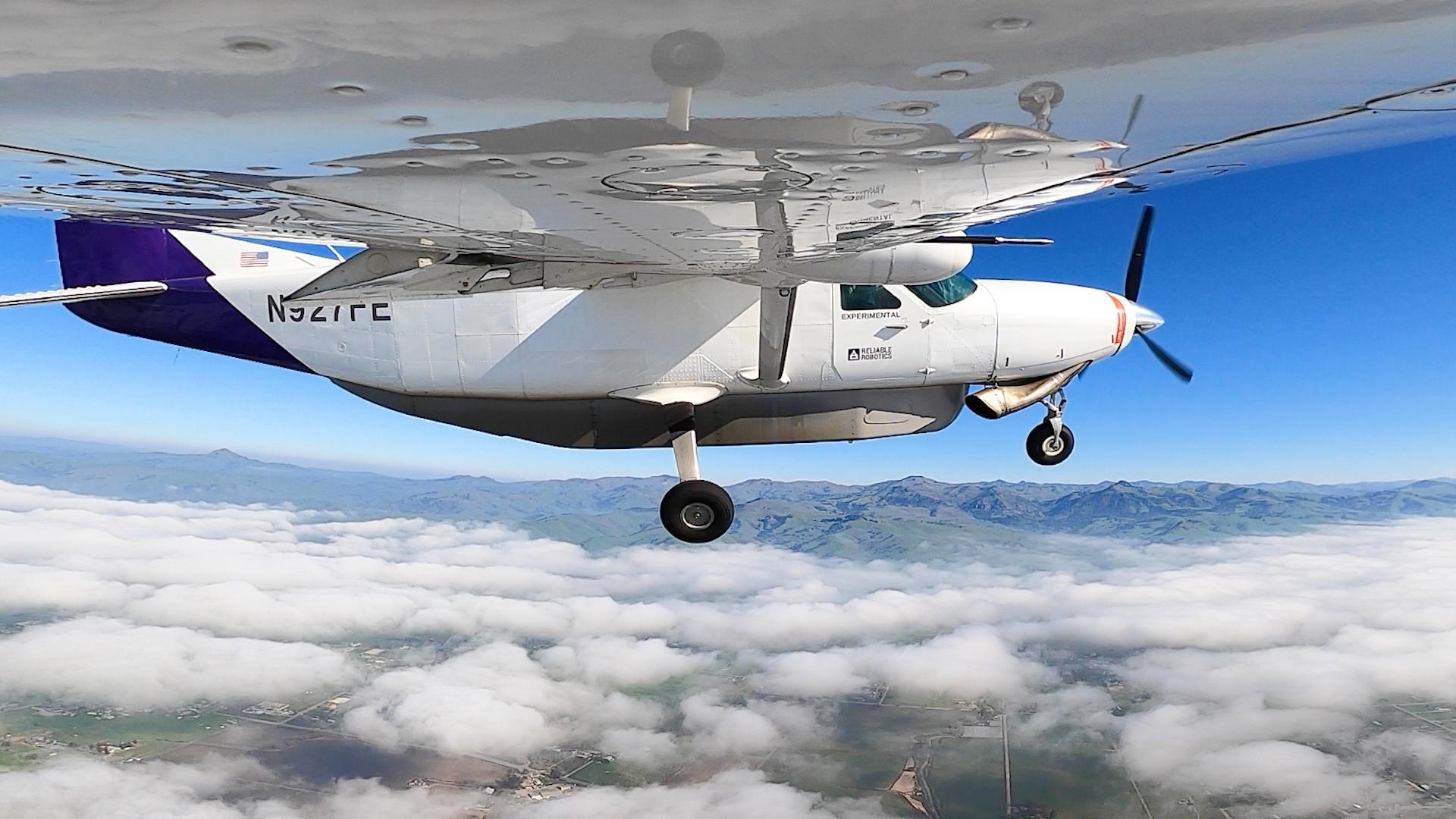
The FAA has agreed to a certification basis for Reliable Robotics’ autoflight and navigation systems.
A final G-1 issue paper will serve as a formal agreement between the company and the regulator for airworthiness and environmental requirements for Supplemental Type Certification of a modified Cessna 208 Caravan cargo aircraft, Reliable Robotics said on Aug. 23. The certification basis will be for Part 23 aircraft, the company says.
Reliable Robotics wants to certify its technology for continuous autopilot engagement through all phases of the Cessna 208’s operations, including taxi, takeoff, cruise, landing, braking and rollout. A single pilot would remain on board for “abnormal procedures.”
“This certification basis is the culmination of years of work with the FAA and represents a key step toward bringing advanced navigation and autoflight systems to normal category aircraft,” says Mark Mondt, director of certification at Reliable Robotics.
The startup, based in Mountain View, California, sees autonomy technology serving as a backup safety pilot that would avoid fatal crashes caused by controlled flight into terrain and loss of control.
“Advanced automation systems will reduce the occurrence of these accidents and bring an unprecedented level of safety to commercial aviation through precision navigation, sophisticated flight planning and robust flight controls,” Reliable Robotics says.
The company and competitors such as XWing are ultimately pushing toward autonomous cargo operations with no pilots on board. Removing a pilot from cargo operations would be a significant cost savings. Cargo operations are also seen as a practical area of aviation to introduce flight autonomy as the aircraft do not carry any passengers.
Now that it has established a certification basis with the FAA, the next step in the process is to establish means of compliance. That is a process in which the company looks more closely at the safety rules and identifies ways of demonstrating compliance with them. Following that, it needs to come up with a detailed certification plan for testing each system. Reliable Robotics would then document the results of aircraft inspections, tests and analyses. In the final stage, results of the testing would be verified by the FAA. If the agency finds the results satisfactory, it would issue certification.





